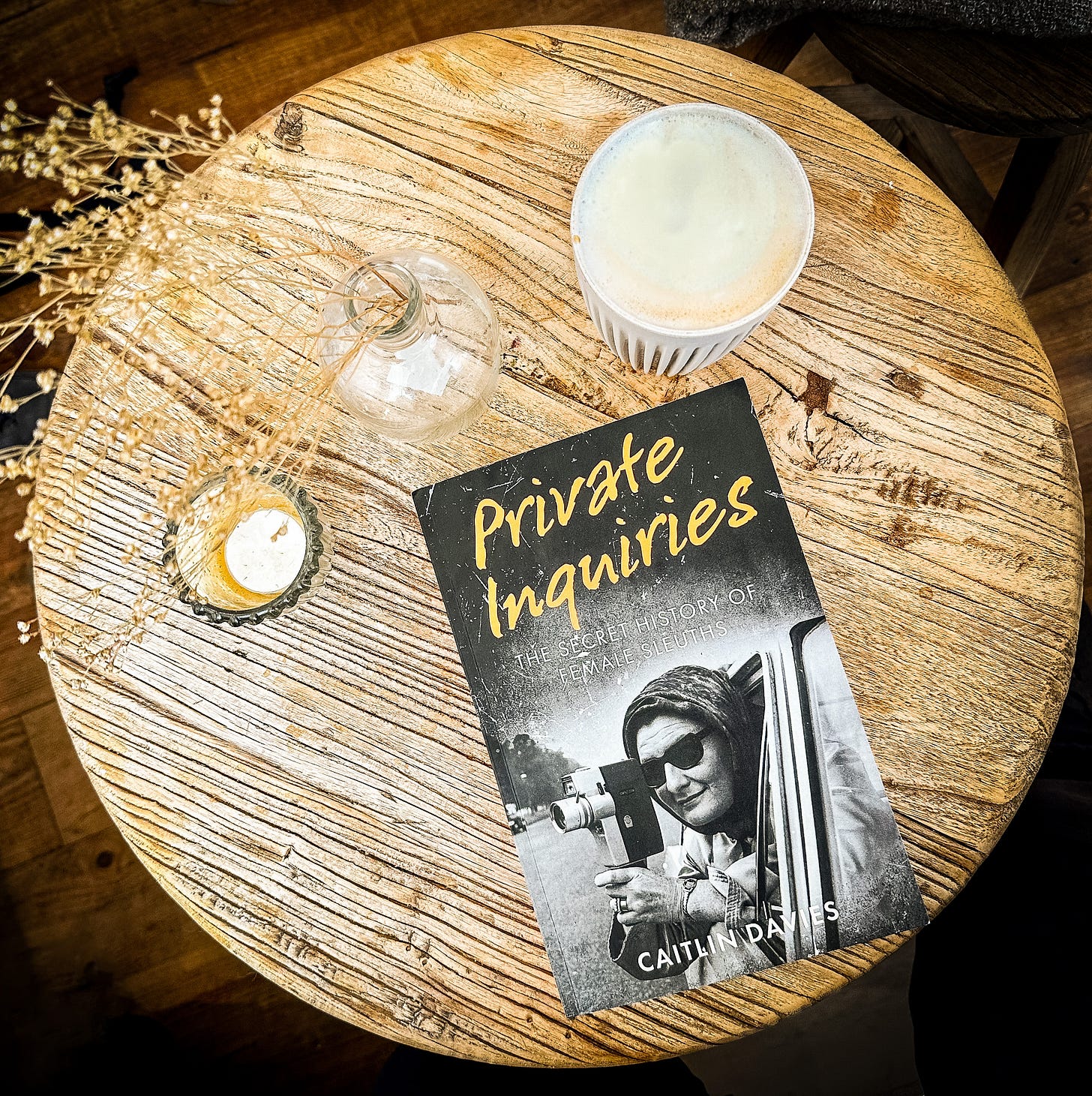Private Inquiries
Caitlin Davies's new book adds to our knowledge of female private detectives past and present
I started researching female private detectives several years ago, and when I started researching, I was only aware of a limited amount of work that had been done in this area. There was the odd academic journal article, and a couple of books looking at fictional detectives, but outside of interest in Kate Warne - a 19th century American detective employed by Pinkerton's Detective Agency - there didn't seem to be much research about this subject. Then things started to change. Susannah Stapleton's biography of Maud West, a fascinating London-based detective in the first half of the 20th century, was published, followed by my own introductory history of female private detectives in Britain, Sister Sleuths.
Now at least two others are writing about female detectives; Clare Clarke is working on a book about Antonia Moser and her detective partner Maurice, and, more immediately, Caitlin Davies' own history of female detectives, Private Inquiries, is about to hit the shelves. Her book is the subject of my review today.
There's bound to be some nervous anticipation about new books on things you've written about - will it repeat what I've researched? Will it find out things I should have looked at? - but there's also a sense of excitement. I'm so pleased that a group of women are emerging who all find this subject wildly interesting, and who are ensuring that pioneering women detectives are emerging from the shadows and gaining their rightful place in history books.
And that's a key theme that emerges from Caitlin's engaging book: the importance of writing: being written about, and thus acknowledged. Many of the women she looks at were sidelined in some way - their fathers or husbands got attention in their lifetimes that they should have rightfully got, or they have been forgotten over the course of time. It feels that some were cognisant of this: some wrote articles for the newspapers about their adventures (whether factual or fictionalised) in order to get publicity and attention for their businesses. Others published their own memoirs, seeking recognition for their work in what has long been seen as a masculine field - despite, as myself and Caitlin have argued, women working as private detectives for far longer than is assumed.
The process of researching and writing is also foregrounded in Caitlin's book. As part of her research, she visited sites associated with the most famous fictional detective, Sherlock Holmes, to see why people wanted to learn about him, and discovered that many believed he was real - and when told otherwise, it didn't affect their interest in him. She tried to interest others in the fact that a real female detective, Annette Kerner, was once based on Baker Street, drawing attention to the issue that tourists visit a location because of a fictional detective, yet are unaware of, or disinterested in, a real-life equivalent. The written, created version of the detective is what is seen as important, and people forget that real women have worked as sleuths for centuries, whether on an amateur or professional basis.
Caitlin and I both undertook qualifications to become private investigators as part of our research, and I really enjoyed her focus on this, which gives a different shape to her narrative than mine. She undertook two different courses to see what they could tell her about private detection and what it involves today. She starts with the present, returning to this at regular points, but uses her perspective to then delve into the past history of private detection, and particularly the role of women in this field. I focused on the 19th century in my book, and although Caitlin does look at the earlier history of female detectives, and there is inevitably a bit of overlap between our material given the paucity of information on female detectives and thus a reliance on the ones we can identify and build a biography of, her focus is more on the 20th and 21st centuries.
She also focuses in on particular case studies, such as Antonia Moser and Maud West, but then looks at a couple of later UK female detectives in particular - Annette Kerner and Zena Scott-Archer. As she makes clear, Liverpudlian Zena’s long career as a private detective and agency boss should really make her more well-known - and this book will hopefully go someway to introduce her achievements to a new generation.
Towards the end, Caitlin goes on a hunt for present-day ‘lady detectives’, and finds them to largely still prefer hiding in the shadows. Finally, she locates one who has embraced modernity, having her own literal and physical shopfront to advertise her services (interestingly, given the emphasis on the importance of writing and recording women’s presence as private detectives, she does not use the phrase ‘private detective’ to advertise her services). Caitlin’s own shadowing of this particular female-run agency, and her attempts to be a private detective herself (following someone round John Lewis, for example), are hugely enjoyable, but also serve to highlight just how hard a job this was, and continues to be.
Private Inquiries, by Caitlin Davies, will be published by The History Press on 12 October 2023. You can order it here.




This is a great piece, thank you.